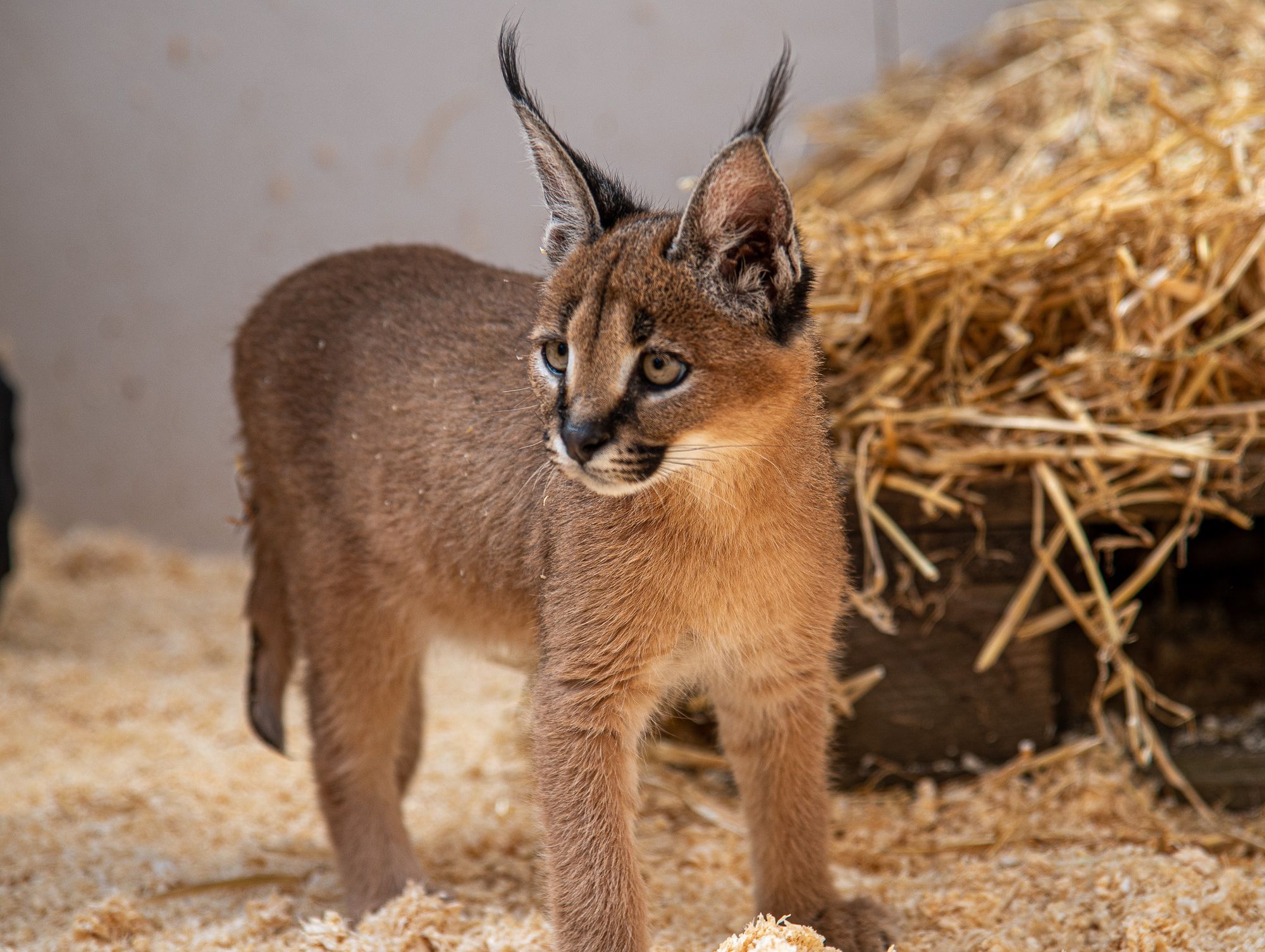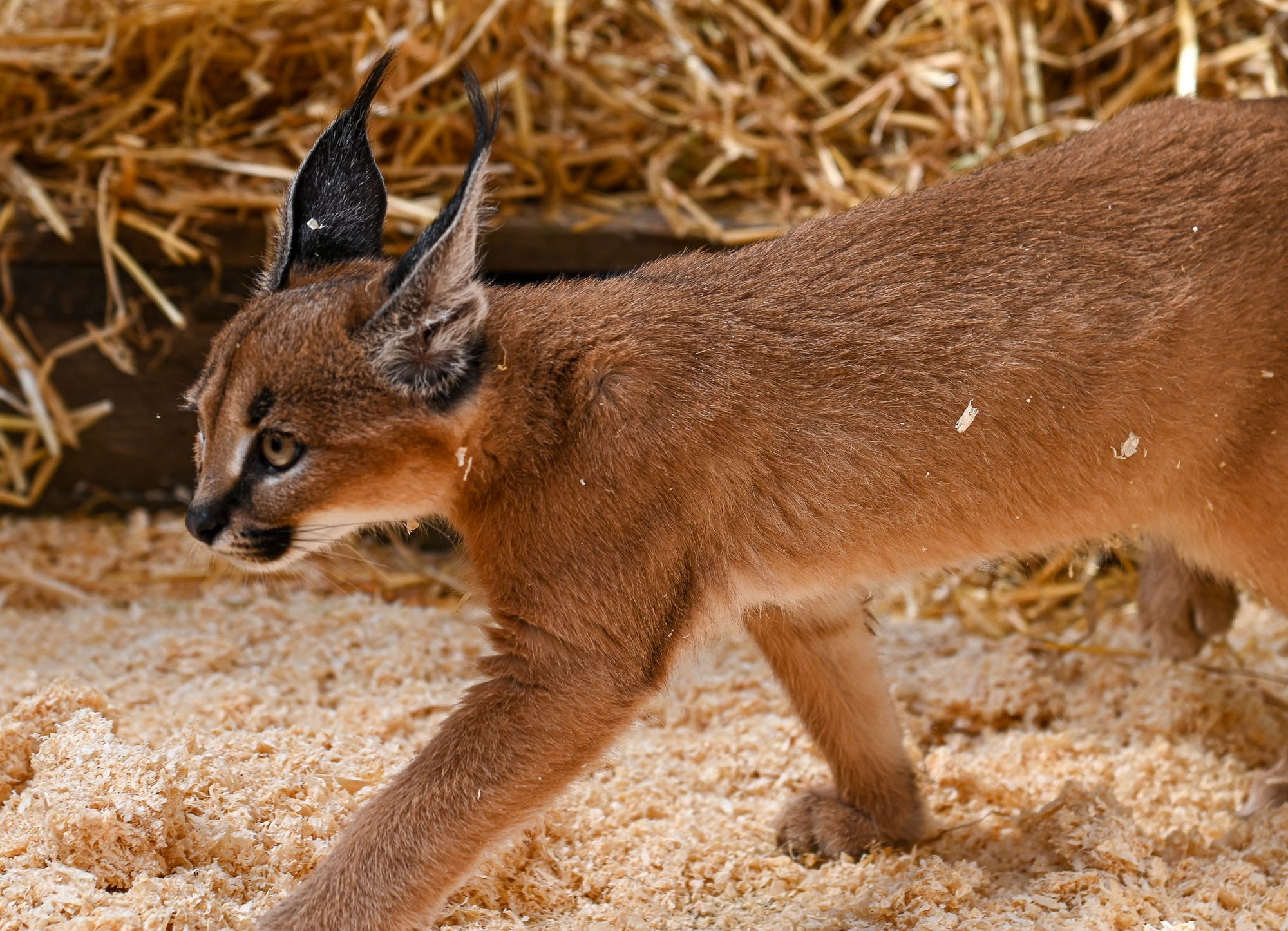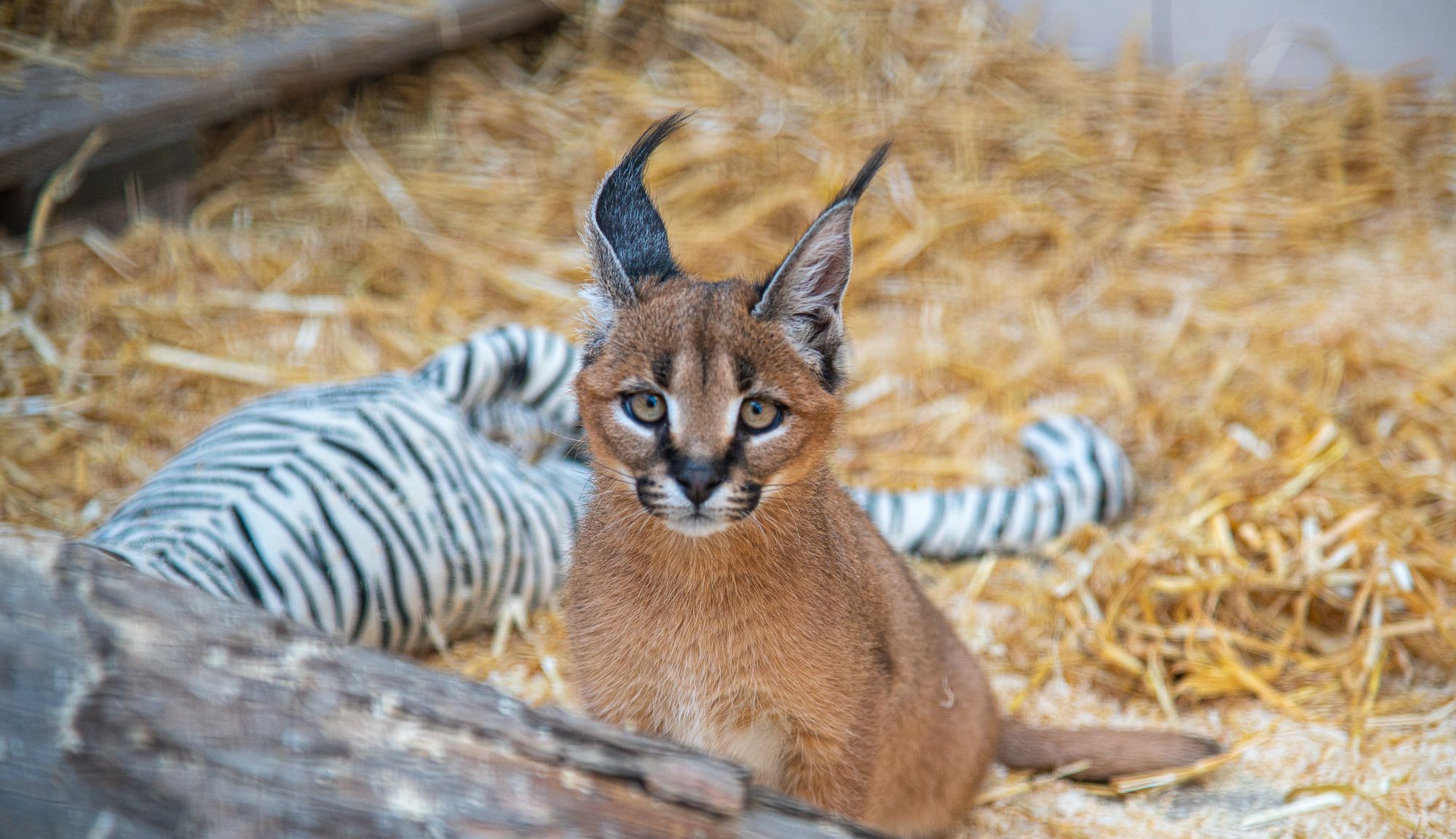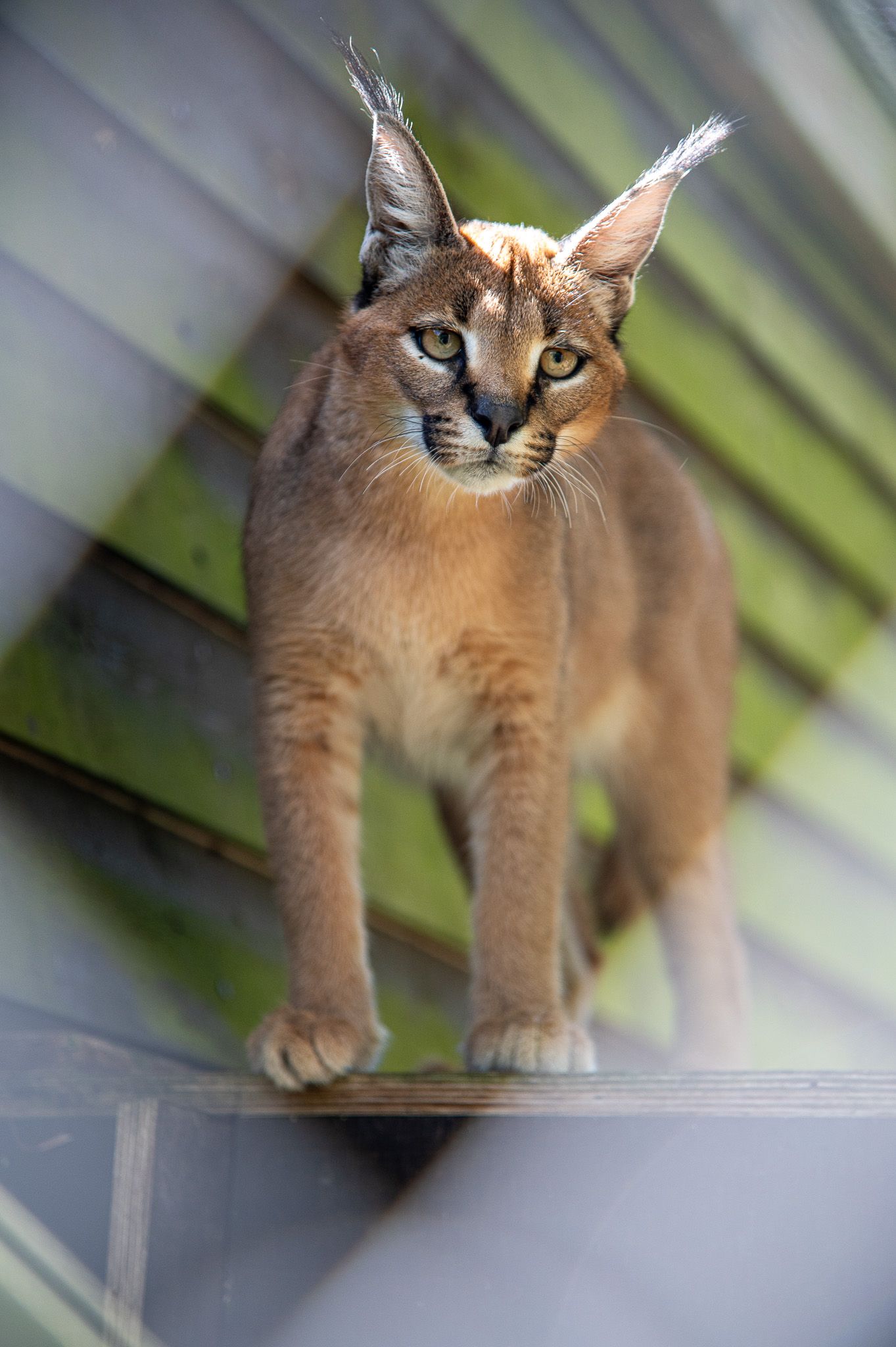My Journey with an Unexpected Guest: A Caracal Kitten left in our parking lot

Hey everyone, it's Niko here. I've got a story for you today that most certainly took us all by surprise. This rescue news story is about an extraordinary little being that found its way into our rescue zoo after we discovered the tiny Caracal in our parking lot.
Just another quiet morning at Odsherred Zoo Rescue, the first rescue zoo of its kind in Denmark. We were busy as usual, tending to our beloved animals, when we received a call from an anonymous individual, with an unusual request. His friend had impulsively purchased a Caracal as a pet and soon realized that keeping this exotic cat in his apartment was not a feasible idea. His initial solution was to euthanize the cat, but his friend objected and took charge, subsequently reaching out to us. His plan was to deliver the kitten the following day and depart immediately. As a rescue zoo, we've encountered many unusual events, but this case was exceptional.

For those who might not know, a caracal is a medium-sized wild cat native to Africa, the Middle East, Central Asia, and India. And not a pet!
The caracal’s journey to our Danish rescue zoo began in Germany. A breeder there was selling them as regular pets to unsuspecting individuals, often influenced by their exposure on social media. The Danish man who brought it to us paid 30,000 kr. He quickly realized that having a caracal as a pet is not an easy task, and most definitely not a good idea. The animal's large paws, long claws, and aggressive nature quickly made him rethink his decision. He attempted to sell the cat online via local auction sites, which is when he discovered the illegality of his actions, as people began reporting his posts to the police.
On her first day in the rescue zoo, the kitten arrived skinny, scared, and dehydrated. She refused to eat anything, so our primary concern was figuring out her dietary preferences. We tried to reconnect with the anonymous friend who'd left her in the parking lot, but his number was no longer in service. We experimented with various foods, eventually discovering that chicken was the only thing she'd eat. However, fixating on a single food source can be detrimental, as it may be challenging for the animal to transition to a varied diet. This is something you might have encountered with your own pets. We had immediate concerns about providing her with food and water, but also about the unhealthy all-chicken diet she'd apparently been on, which is inadequate for a growing animal like her. The lack of essential nutrients and minerals can lead to conditions such as brittle bones. Our next task was to gradually introduce other types of meat, vitamins, and oils into her diet. It seems to be working, but she is a picky eater.

The anonymous friend initially wanted to simply drop off the kitten and leave, but he ended up calling us to ensure we collected the kitten safely from the parking lot.
The following months have been an incredible journey with her. As the primary caretaker, living onsite at the rescue zoo allowed me to provide her with constant attention and security. Having a single trustworthy person to care for her was the best solution in this case, rather than multiple zookeepers working in shifts.
I cannot begin to describe how inspiring it was to witness this small creature's transformation from a scared, confused kitten to a confident, playful, and loving being. Moments like these reinforce why I devote my life to running a rescue zoo alongside my mother, the founder and director.

Sharing this journey with the caracal, I realized the resilience of nature. This small, yet fiercely brave creature was dealt an unfair hand, thrust into a world of uncertainty. Yet, she has remained strong, and she has not lost her trust in us and life.
This journey is a testament to the incredible work we do at the rescue zoo and the dedicated people working at Denmark's first rescue zoo. The caracal's story serves as a reminder that exotic animals are not pets. We must resist the temptation of cute social media posts, as it's detrimental to the animals and the uninformed individuals who unknowingly welcome them into their homes. We all have a responsibility to protect and respect our animals and nature.
To our friends around the world, I hope this story inspires you to act, to respect all life, and to stand against the illegal wildlife trade. If this story of our brave little caracal has touched your heart, please consider sharing it and subscribing to our online rescue animal magazine to support our cause.
Best, Niko

